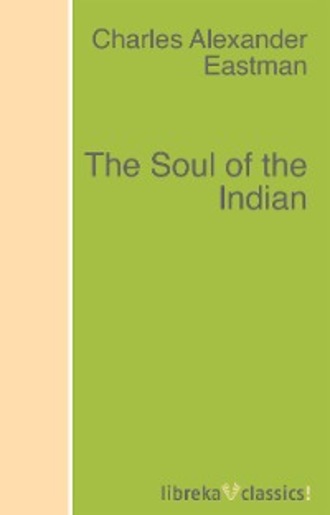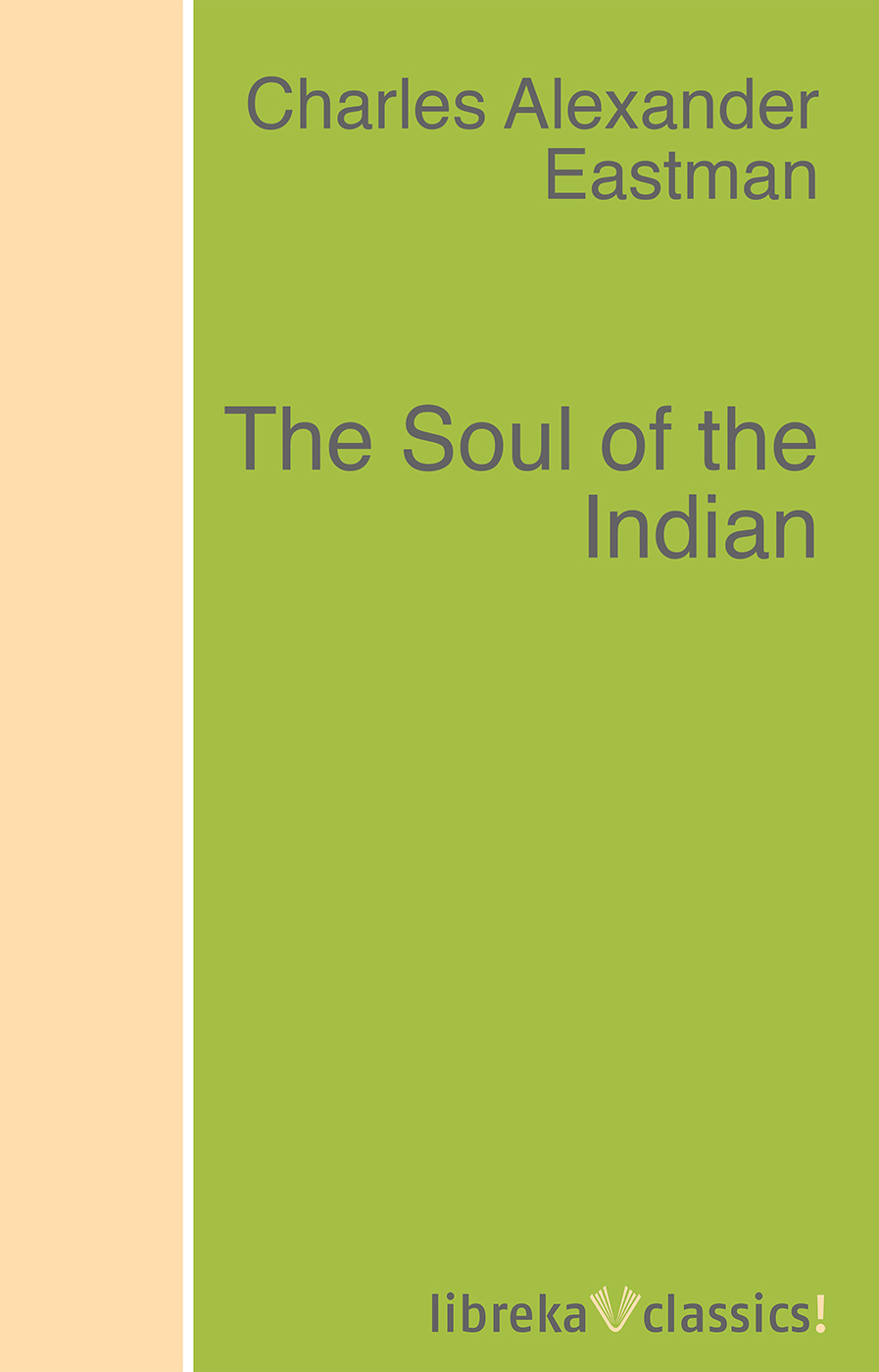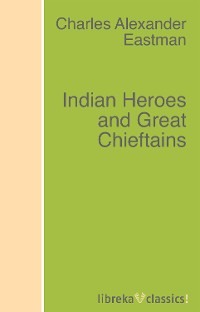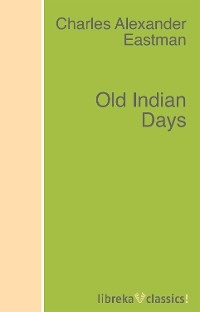
Полная версия
The Soul of the Indian


Titel: The Soul of the Indian
von Scott Hemphill, L. M. Montgomery, L. Frank Baum, John Milton, René Descartes, Baroness Emmuska Orczy Orczy, Karl Marx, Friedrich Engels, Edgar Rice Burroughs, Unknown, Norman F. Joly, Norman Coombs, David Slowinski, Mark Twain, Henry David Thoreau, Stephen Crane, John Goodwin, Nathaniel Hawthorne, Winn Schwartau, Odd De Presno, Sir Walter Scott, Jules Verne, Mary Wollstonecraft Shelley, United States. Central Intelligence Agency, United States, Canada, Willa Sibert Cather, Anthony Hope, Edwin Abbott Abbott, Charles Dickens, Frederick Douglass, William Shakespeare, Bruce Sterling, Franklin Delano Roosevelt, Jane Austen, Thomas Hardy, Sir Arthur Conan Doyle, Edna St. Vincent Millay, Gene Stratton-Porter, Richard McGowan, Frances Hodgson Burnett, United States. Bureau of the Census, Electronic Frontier Foundation, Robert Louis Stevenson, Anonymous, Jerry Bonnell, Robert Nemiroff, Andrew Lang, G. K. Chesterton, John Bunyan, Sunzi 6th cent. B.C., Harold Frederic, Mary Wollstonecraft, Victor Hugo, René Doumic, Upton Sinclair, Virginia Woolf, George Eliot, Thomas Paine, Benjamin Franklin, Plato, Samuel Taylor Coleridge, Ruth M. Sprague, William Dean Howells, Wilkie Collins, Jean Webster, H. G. Wells, Kate Chopin, Mark Eliot Laxer, Louisa May Alcott, Frank Norris, Edith Wharton, S. D. Humphrey, Henry Hunt Snelling, William Morris, Mrs. Susanna Rowson, Christopher Morley, Sax Rohmer, Oscar Wilde, Gaston Leroux, Henry James, Project Gutenberg, Harriet Beecher Stowe, Various, Robert W. Service, A. B. Paterson, Henry Lawson, Jack London, Laozi, D. H. Lawrence, Julius Caesar, Joseph Conrad, W. Somerset Maugham, George MacDonald, Marcus Tullius Cicero, Virgil, Theodore Dreiser, Giuseppe Salza, Rudyard Kipling, ca. 50 BCE-16 BCE Sextus Propertius, Robert A. Harris, William Wells Brown, graf Leo Tolstoy, Omar Khayyám, Michael Hart, Library of Congress. Copyright Office, Coalition for Networked Information, Geoffrey Chaucer, Adam Lindsay Gordon, Hiram Corson, Robert Browning, Amy Lowell, Rupert Brooke, Joyce Kilmer, John Gower, Saki, Kenneth Grahame, Anna Sewell, Martin Luther, Philipp Melanchthon, National Atomic Museum, Alexander William Kinglake, Charles John Cutcliffe Wright Hyne, Amelia Edith Huddleston Barr, James Branch Cabell, Bayard Taylor, Horatio Alger, Booth Tarkington, Hjalmar Hjorth Boyesen, Michael Husted, Émile Gaboriau, Jerome K. Jerome, Stephen Vincent Benét, Edwin Arlington Robinson, J. Frank Dobie, Joseph Rodman Drake, Eliot Gregory, John Fox, John Muir, Richard Harding Davis, Edgar A. Guest, Mary Roberts Rinehart, Thomas Nelson Page, Sir Walter Alexander Raleigh, Rebecca Harding Davis, Charles Alexander Eastman, Zitkala-Sa
ISBN 978-3-7429-0301-3
Alle Rechte vorbehalten.
Es ist ohne vorherige schriftliche Erlaubnis nicht gestattet, dieses Werk im Ganzen oder in Teilen zu vervielfältigen oder zu veröffentlichen.
THE SOUL OF THE INDIAN
An Interpretation
By Charles Alexander Eastman (Ohiyesa)
FOREWORD
"We also have a religion which was given to our forefathers, and has been handed down to us their children. It teaches us to be thankful, to be united, and to love one another! We never quarrel about religion."
Thus spoke the great Seneca orator, Red Jacket, in his superb reply to Missionary Cram more than a century ago, and I have often heard the same thought expressed by my countrymen.
I have attempted to paint the religious life of the typical American Indian as it was before he knew the white man. I have long wished to do this, because I cannot find that it has ever been seriously, adequately, and sincerely done. The religion of the Indian is the last thing about him that the man of another race will ever understand.
First, the Indian does not speak of these deep matters so long as he believes in them, and when he has ceased to believe he speaks inaccurately and slightingly.
Second, even if he can be induced to speak, the racial and religious prejudice of the other stands in the way of his sympathetic comprehension.
Third, practically all existing studies on this subject have been made during the transition period, when the original beliefs and philosophy of the native American were already undergoing rapid disintegration.
There are to be found here and there superficial accounts of strange customs and ceremonies, of which the symbolism or inner meaning was largely hidden from the observer; and there has been a great deal of material collected in recent years which is without value because it is modern and hybrid, inextricably mixed with Biblical legend and Caucasian philosophy. Some of it has even been invented for commercial purposes. Give a reservation Indian a present, and he will possibly provide you with sacred songs, a mythology, and folk-lore to order!
My little book does not pretend to be a scientific treatise. It is as true as I can make it to my childhood teaching and ancestral ideals, but from the human, not the ethnological standpoint. I have not cared to pile up more dry bones, but to clothe them with flesh and blood. So much as has been written by strangers of our ancient faith and worship treats it chiefly as matter of curiosity. I should like to emphasize its universal quality, its personal appeal!
The first missionaries, good men imbued with the narrowness of their age, branded us as pagans and devil-worshipers, and demanded of us that we abjure our false gods before bowing the knee at their sacred altar. They even told us that we were eternally lost, unless we adopted a tangible symbol and professed a particular form of their hydra-headed faith.
We of the twentieth century know better! We know that all religious aspiration, all sincere worship, can have but one source and one goal. We know that the God of the lettered and the unlettered, of the Greek and the barbarian, is after all the same God; and, like Peter, we perceive that He is no respecter of persons, but that in every nation he that feareth Him and worketh righteousness is acceptable to Him.
CHARLES A. EASTMAN (OHIYESA)




